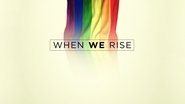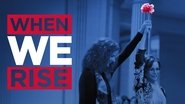Aneesa Wardle
The story, direction, characters, and writing/dialogue is akin to taking a tranquilizer shot to the neck, but everything else was so well done.
kmcginty71
The story is one that's important to tell, but the quality is NO WHERE near "And the Band Played On" or "Milk." The dialogue is trite and forced, and when the "bad guys" (homophobes) speak, they sound like villains straight out of Dragnet. The bad dialogue then prevents these talented actors from giving strong performances. I almost wondered if George Lucas had written the screenplay...DO watch it; it's important for kids and younger adults today to know this story. But I have to recommend "And the Band Played On" as the better film on the same topic.It was made for HBO with better acting and more believable dialogue, and actually tells you much more about the early days of the AIDS crisis.I'm very disappointed to see how "network" ABC made this thing; it feels low budget and heavily watered down.
tm-sheehan
A must see Teleplay for everyone who has ever cared about Human Rights issues ,especially young GLBTQI people who are enjoying many of the freedoms that were hard fought for and our struggles and setbacks from the early 1970's .A splendid cast that includes Guy Pearce ,Rachel Griffiths, Mary Louise Parker and Jonathan Majors it's all true ,it happened in my lifetime and it shows how far we still have to go,especially in Australia with the battle for Marriage Equality for all.
Sean H-. (cornflakeboy20)
This mini-history of lgbt civil rights begins in 1971 with a young Cleve Jones along with two other activists' story in San Francisco, as they attempt to create a safe space for the gay community, elect Harvey Milk, deal with the AIDS crisis, and finally help to usher in gay marriage. The beginning is quite compelling as we are thrust into the epicenter of late 60s/early 70s activism not only with the gay rights movement, but civil rights and feminism. While it is odd that it did not begin with the Stonewall riots a few years earlier, we do get the impression that we are following the right people at the right time to get a bird's eye view of the struggle. The actor playing the young Cleve Jones, upon whose memoir the story was based, does a wonderful job playing a charismatic young man. His older version, played by Guy Pearce, is equally convincing, though the passage of time and changes in his life have made him a less intriguing character. The young actress portraying Roma Guy, a community activist and feminist, suffers from unfortunate hair styling and a bit of shyness, which is corrected in her older version well-played by Mary Louise Parker. Ken Jones, no relation to Cleve, is first portrayed as a soldier, then we follow him as he loses a partner, contracts HIV, succumbs to drugs, then finds God and himself (and some bad hair choices). Dustin Lance Black, who created the series, is best known for the film Milk, and fortunately/unfortunately, the best elements of the story of When We Rise were also contained in that film. The history of San Francisco through the assassination of Milk is fascinating in and of itself. Then, we go in descending order. The history of the early days of AIDS told in the second two episodes is nearly as compelling (as presented here) but begins a slow descent in quality (needless to say, And the Band Played On, presents it better). By the time we're arguing for gay marriage, we wonder if perhaps focusing on different characters for each segment might have been a better plan. While the three leads are center to the action early on, they drift out of importance. The story begins following dramatic story lines that can seem melodramatic. As soon as a good thing happens to a character, you can be certain that something is coming to take the good thing way by the next scene, if not later in the scene itself. It gets a telenovela quality where anything that happens in the life of the characters is mere grist for drama. I am the sort of viewer who loves stories of protests and human rights struggles, and was nearly crying during the first four parts (or first two in their 90 minute versions). It is a great human story and tragedy, very compelling and very modern. It teaches you things you may not know, even if you consider yourself well informed. The last two episodes, perhaps because they are so recent, just are not as compelling. It seems very few compromises were made to put this show on ABC. I was greatly impressed that it didn't seem heavily censored for heterosexuals who might not even watch it. One of the concessions did seem to be that though Democrats have been better on gay rights issues, the series couldn't take sides. Much is made of Clinton not saying a certain phrase in a speech that the activists wanted him to make. This is a real letdown from the high stakes of earlier struggles, and makes you wonder if that scene was just in there to show that Clinton wasn't perfect on the issue (we all know he was not). Overall, I do wish that perhaps we had a new narrator or narrators for each of the two part portions of the series. And that it had started earlier, in the late 60s perhaps. But as a portrait of this particular civil rights struggle from the 70s until roughly today, this manages to well surpass expectations. It's entertaining, educational, and inspirational.
lillinfields
At such a time in the USA and the world where the LGBTQ community still faces discrimination and violence against us this miniseries came along at a perfect time. I cried a lot of sad and happy tears. W/ such a bigot as potus right now WE all need to come together/continue to fight for our rights. The mini series and Cleve Jones is right,One struggle. One fight. I recommend this miniseries become a staple in helping educate the people and older people just what the LGBTQ life is and how much we've had to fight for equality along the way.





